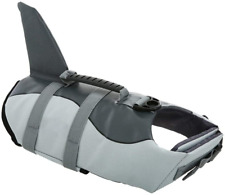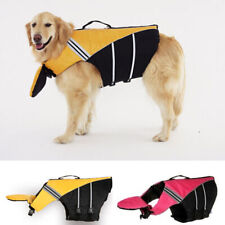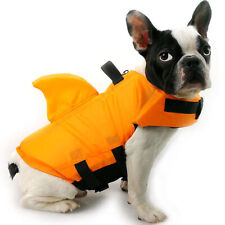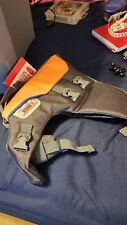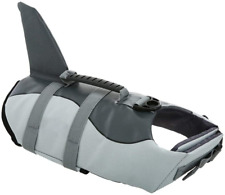Dog Separation Anxiety

1. My dogs name is Jake, he is 2 yr old pit bull jack Russell mix and neutered. When I'm about to leave he starts violently humping my leg, growling and biting at my feet. The more I try and get him off the tighter he grips, louder he growls and bites at my feet or hand if I'm trying to get him off. I don't understand whats going on..? He is the sweetest dog ever! Has no aggression towards anybody or anything.. he plays great with everyone including all adults, kids and babies. He plays great with any kind of dog even cats.. hes never been aggressive towards a person or had a fight with an animal. He is a really wonderful dog. Please help!! It pains me because obviously something is wrong but I don't know what to do to fix it. PLEASE HELP!!!

Masturbatory behavior can be very tricky to assess and prevent, but you included some very important information about Jake in your query. The fact that you stated “when I’m about to leave” tells me that this behavior is linked to separation anxiety and not aggression. I recommend that you talk to his veterinarian about this problem as well, because having the correct diagnosis for the problem will make treatment more successful. My recommendation is to have a member of the household video his behavior. Start the video during the period of time when you are getting ready to leave the house and in the location where the unwanted behavior occurs. Show this footage to your veterinarian.
Think very carefully about what your routines are when you prepare to leave the house. He knows these actions and they are signals that can increase his anxiety. His response is to engage in the masturbatory behavior and then tells you “not to go” when you try to remove him from your leg.
The standard behavioral modification “treatment” for separation anxiety can include independence training, change of departure/return routine and counter conditioning. I will suggest a few things that you can try. Regardless of what I suggest, it is always best to involve a well-respected trainer, his veterinarian or a veterinary behaviorist for problems like these. These experts can also visit your home and see the problem “in action” – which can lead to a more specific “fix” for Jake.
Things to try:
- Identify your routine (examples: picking up the keys, putting on your coat at the door, picking up a bag by the door, verbally saying goodbye to people/animals in the house, leaving from the same door each time, physically touching Jake before leaving, etc.)
- Identify where you are both located when the unwanted behavior occurs (examples: by the door, near where your keys are kept, etc.)
- Change your routine. Examples include: Don’t say goodbye to him when you are about to leave. Ignore him and don’t give any attention immediately before you leave. Pick up your keys and then walk around the house with them in your pocket long before you leave. Store your coat in your bedroom, put it on and then do another task in the house before you leave. Removing anxiety triggers can help prevent his “acting out.”
- Counter conditioning. This means that you teach Jake that good things happen, like getting a favorite treat or prized toy, when you leave the house. This can be a complicated method – I recommend talking to your veterinarian or a trainer about how to do it for your particular situation. This teaches the dog to associate you leaving the house with good things and will decrease the anxiety, thus decreasing the unwanted behavior.
- Reward calm behavior. When you leave the house or enter the house, don’t make a big deal about it. You can even ignore him until you have gotten into the house and settled. Go to the kitchen and do something else before speaking to him. If he begins to mount you – continue walking away. When he is calm, give a treat and talk to him.
- Consider crate training. Crates can be a blessing or a curse for dogs with separation anxiety. However, when properly trained to stay in a crate when you are away, it can be a source of comfort for your dog and will physically prevent the masturbatory behavior. Feeding him in his crate can strengthen his bond with the crate. Some dogs, when “distracted” by having a meal while locked in the crate right before you leave (no talking to him, no saying goodbye) can be calming and prevent problems. /li>

Dog Life Jacket Ripstop Dog Safety Vest Adjustable Preserver with High Buoyancy
$64.86
Adjustable Life Jacket Pet Dog Reflective Vest Preserver Puppy Safety Swimming J
$58.36
EZYDog DFD Dog Floatation Device Safety Vest Life Preserver MicroXS Yellow NEW
$46.00
Pet Swimming Safety Vest Dog Life Jacket Reflective Stripe Preserver Puppy
$54.10
AQUATIC PET PRESERVER Dog Life Jacket ~ Size XXL Safety Yellow ~ Dogs Swim Vest
$39.00
Pet Swimming Safety Vest Dog Life Jacket Reflective Stripe Preserver Puppy
$54.00
Kong Dog Float Ripstop Flotation Preserver Safety Vest Adjustable Life Jacket
$49.00
Queenmore Dog Life Jacket Ripstop Dog Safety Vest Adjustable Preserver with High
$53.99
Kong Dog Life Jacket Preserver Flotation Vest Adjustable Heavy Duty Safety Float
$52.50
Queenmore Dog Life Jacket Ripstop Dog Safety Vest Adjustable Preserver with High
$51.98
